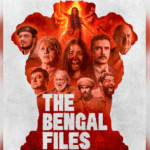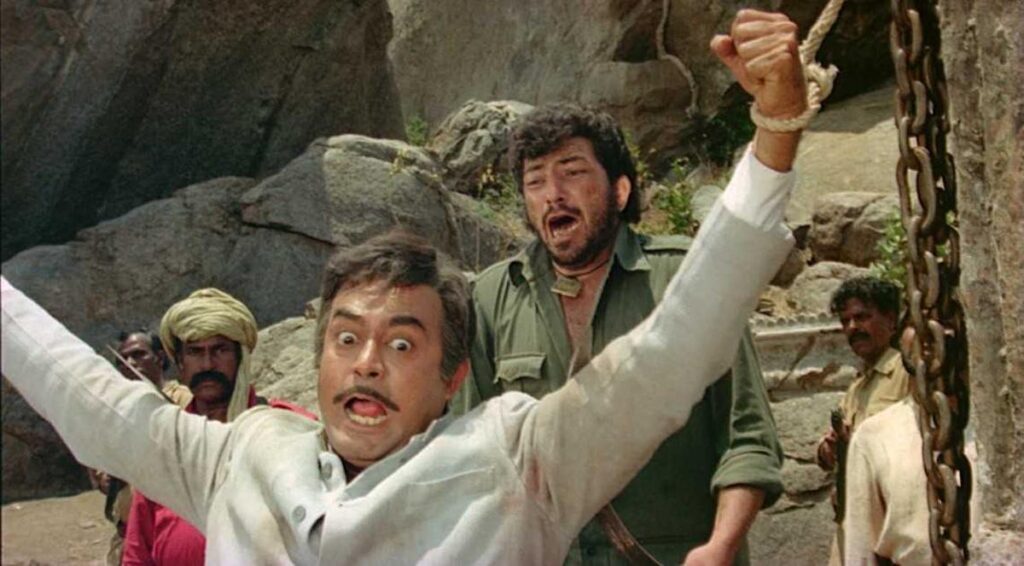
In 1975, a film released that would go on to change Indian cinema forever- Sholay. It’s hard to believe, but the legendary movie Sholay is now 50 years old. Released in 1975, it did not start as the roaring success we know today. In fact, the film had a slow opening, and some critics even labeled it a flop in its first few weeks. But word of mouth soon changed its destiny. People began talking about its gripping story, unforgettable characters, and powerful dialogues. Before long, Sholay became a phenomenon, running for an incredible five years in one Mumbai theatre—a record that still stands.
A Story Beyond Its Time
Ramesh Sippy’s Sholay brought together action, drama, romance, comedy, and emotions in a way that had never been seen before in Indian cinema. The story of two small-time crooks, Jai and Veeru, hired by a retired police officer “Thakur Baldev Singh” to capture the dreaded bandit Gabbar Singh to take his revenge, was simple yet deeply impactful. What made it unforgettable was its execution, character depth, and powerful dialogues.
Characters and Dialogues That Became Timeless
Sholay is not just a film; it is a feeling. Its charm lies in the characters, the emotions, and the timeless storytelling that continues to resonate even today. Written by the legendary duo Salim–Javed, Sholay’s dialogues became part of India’s cultural DNA. From “Yeh haath mujhe de de Thakur” to “Itna sannata kyun hai bhai?”, these lines are still quoted in everyday life. They weren’t just dialogues; they were emotions—funny, powerful, and unforgettable. In addition, each character in the movie was so remarkable that their impact remains just as strong today as it was 50 years ago.
Jai and Veeru (Amitabh Bachchan and Dharmendra): The heart of the film was their unbreakable friendship. Their playful banter, loyalty, and sacrifices made audiences fall in love with them. The song “Yeh Dosti Hum Nahi Todenge” remains Bollywood’s ultimate friendship anthem.
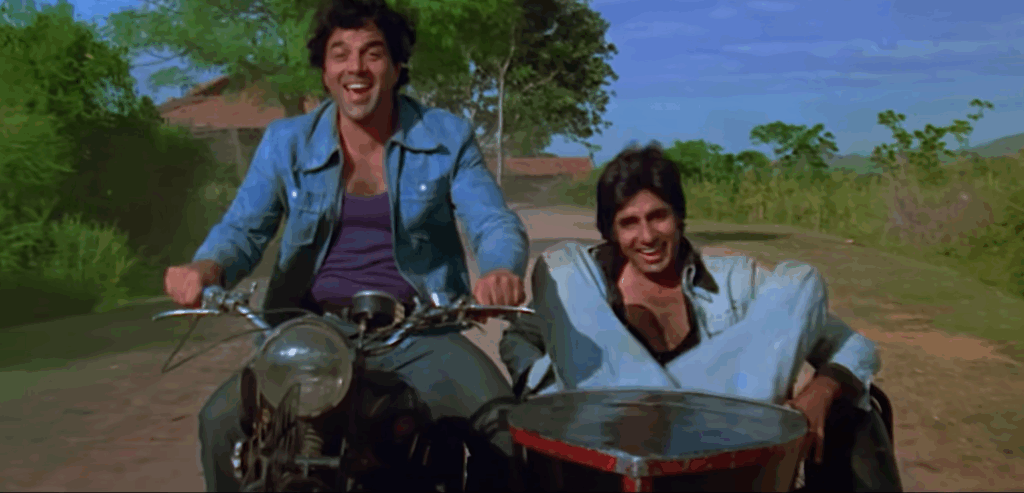
Thakur (Sanjeev Kumar): A symbol of resilience and justice. Though handicapped, his silent rage and thirst for revenge against Gabbar gave the story emotional depth. His quiet strength left audiences rooting for him.
Gabbar Singh (Amjad Khan): A villain who turned into a legend. His chilling laugh, fiery eyes, and iconic lines like “Kitne aadmi the?” and “Jo dar gaya, samjho mar gaya” turned Gabbar into the most feared and loved villain in Indian cinema. Even today, his dialogues echo in conversations, ads, and memes.
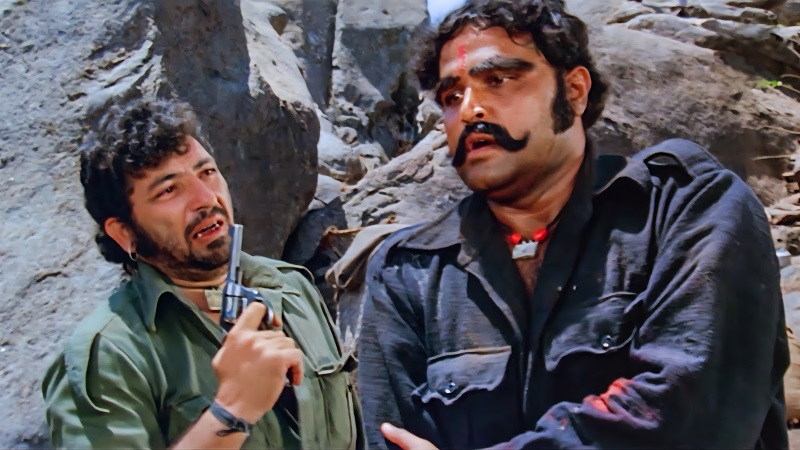
- Basanti (Hema Malini): The spirited tonga driver brought joy and laughter. Her endless chatter, energy, and iconic lines like “Yunki, ye kaun bola?” and “Chal Dhanno, aaj teri izzat ka sawaal hai,” made her one of the most memorable heroines of Bollywood.
Radha (Jaya Bachchan): Her silence spoke louder than words. Her quiet grief and soulful presence added depth to the story, reminding us that even in a tale filled with action, moments of stillness can be powerful.
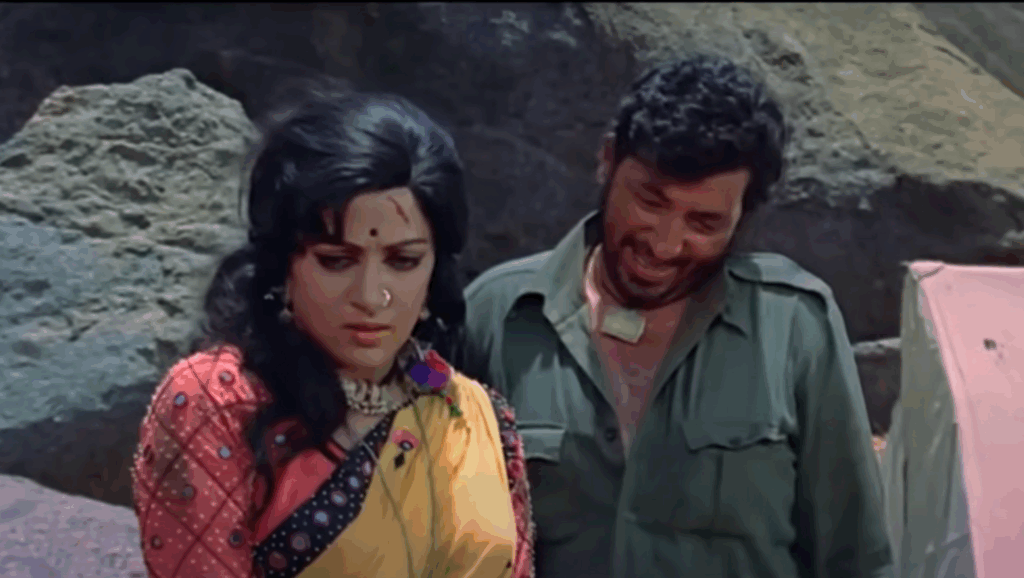
Sholay’s Lasting Impact
Sholay is often called the first true “curry Western” of Bollywood, blending Western-inspired action with Indian emotion. Its innovative cinematography, grand scale, and haunting background score made it ahead of its time. But more than that, it gave us characters we could never forget and a story that still feels fresh 50 years later.
A Legacy That Shines On
Half a century later, Sholay is not just remembered—it is celebrated. Politicians quote its lines, brands recreate its characters, and filmmakers continue to take inspiration from its storytelling. For younger generations, discovering Sholay is like opening a treasure chest of Bollywood’s golden past.
Sholay at 50: Evergreen Forever
As we celebrate 50 years of Sholay, one thing is clear: this is not just a movie. It is an eternal part of Indian culture. Its dialogues still bring laughter, its songs still bring joy, and its characters still live in our hearts. Few films stand the test of time the way Sholay has, and that is why it will always remain the greatest cult classic of Indian cinema.


